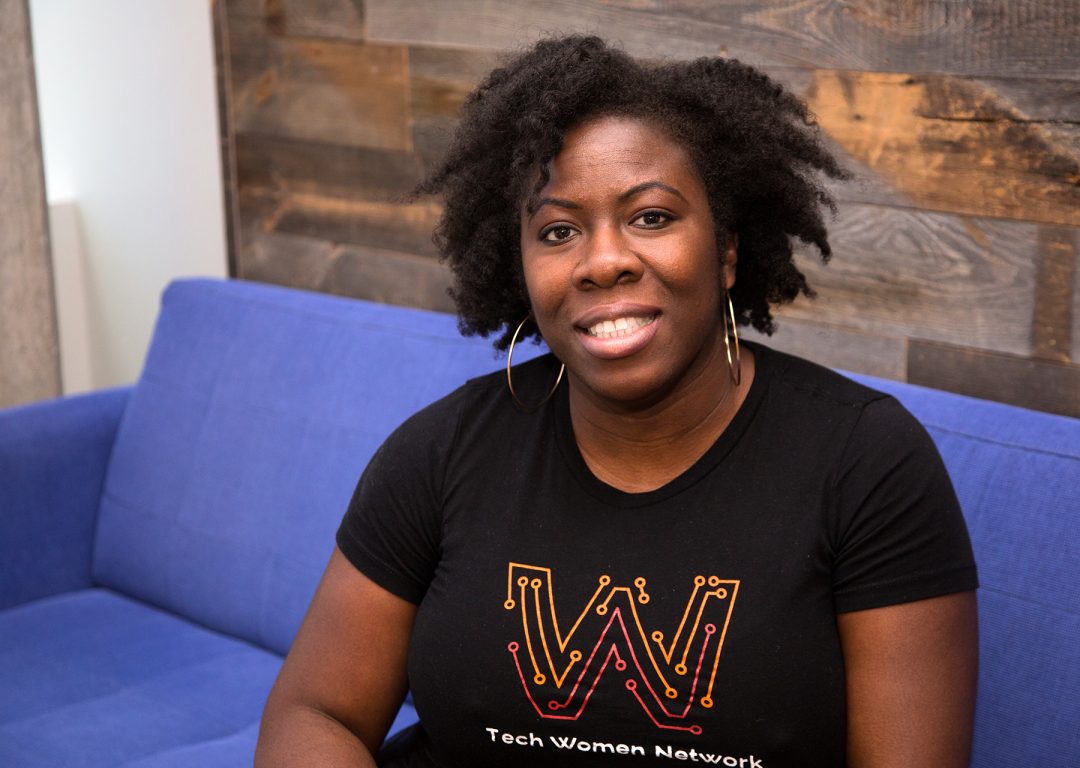 "Since my father's passing I've noticed that I have so much of his strength. On March 9th, 1975 my father, Francis Dada, first stepped on U.S. soil. He was fearless and selfless and determined to make another life for himself when he left Nigeria. He came here and was a janitor at McDonald's and became a microbiologist and raised 6 kids. I feel like he was my celebrity. Everything he has ever said to me, I hear so loudly still. He said I was a pioneer in technology and he wanted me to reach my fullest potential. He was my biggest champion." - Jumoke Dada is a tech consultant and strategist for women at Dadaverse.org.
"Since my father's passing I've noticed that I have so much of his strength. On March 9th, 1975 my father, Francis Dada, first stepped on U.S. soil. He was fearless and selfless and determined to make another life for himself when he left Nigeria. He came here and was a janitor at McDonald's and became a microbiologist and raised 6 kids. I feel like he was my celebrity. Everything he has ever said to me, I hear so loudly still. He said I was a pioneer in technology and he wanted me to reach my fullest potential. He was my biggest champion." - Jumoke Dada is a tech consultant and strategist for women at Dadaverse.org.
Deborah Cannon
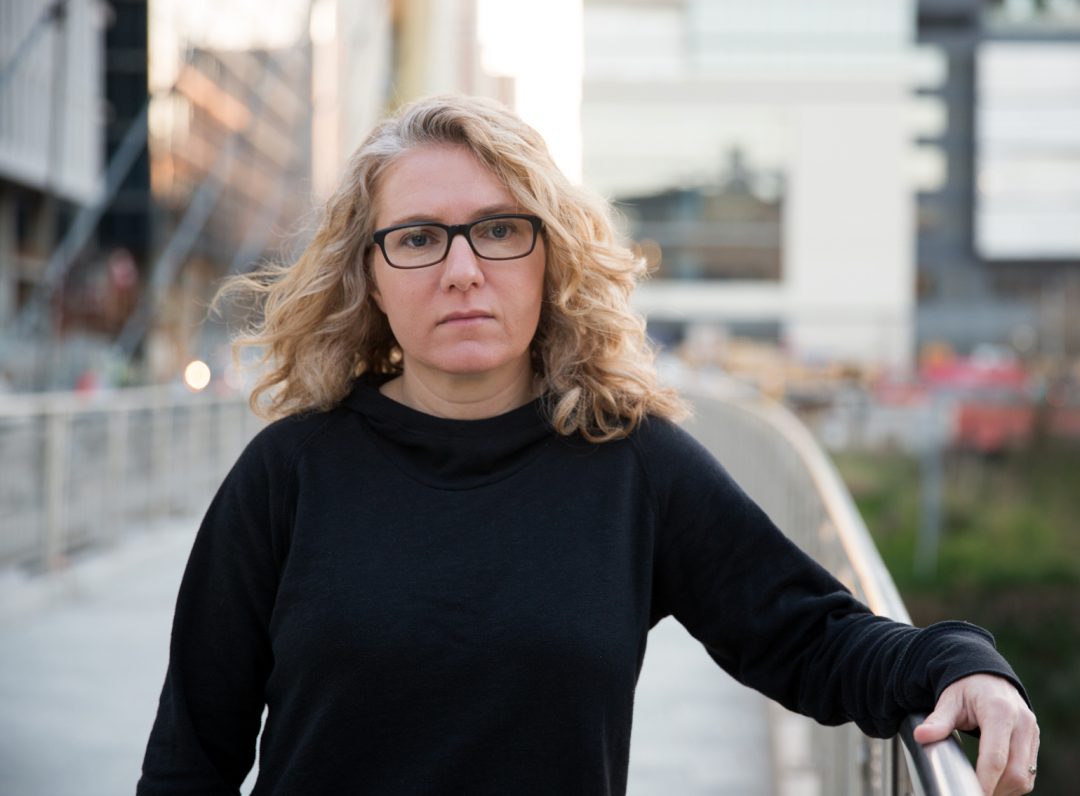 "My parents raised me to believe I could do anything and gender was never a part of it. When I was 18 years I went to Florida to pick up a car from my father and drive it back to Texas. He gave me his car and he also gave me his gun. He said, "You never point this gun at someone unless you plan on killing them." That was the first time he showed to me that he is scared to have a girl in the world and it was when I realized I may not be as powerful and untouchable as I thought I was or as they raised me to be." - Deborah Cannon is a photojournalist and lives in Austin, Texas.
"My parents raised me to believe I could do anything and gender was never a part of it. When I was 18 years I went to Florida to pick up a car from my father and drive it back to Texas. He gave me his car and he also gave me his gun. He said, "You never point this gun at someone unless you plan on killing them." That was the first time he showed to me that he is scared to have a girl in the world and it was when I realized I may not be as powerful and untouchable as I thought I was or as they raised me to be." - Deborah Cannon is a photojournalist and lives in Austin, Texas.
Cristina Tamayo
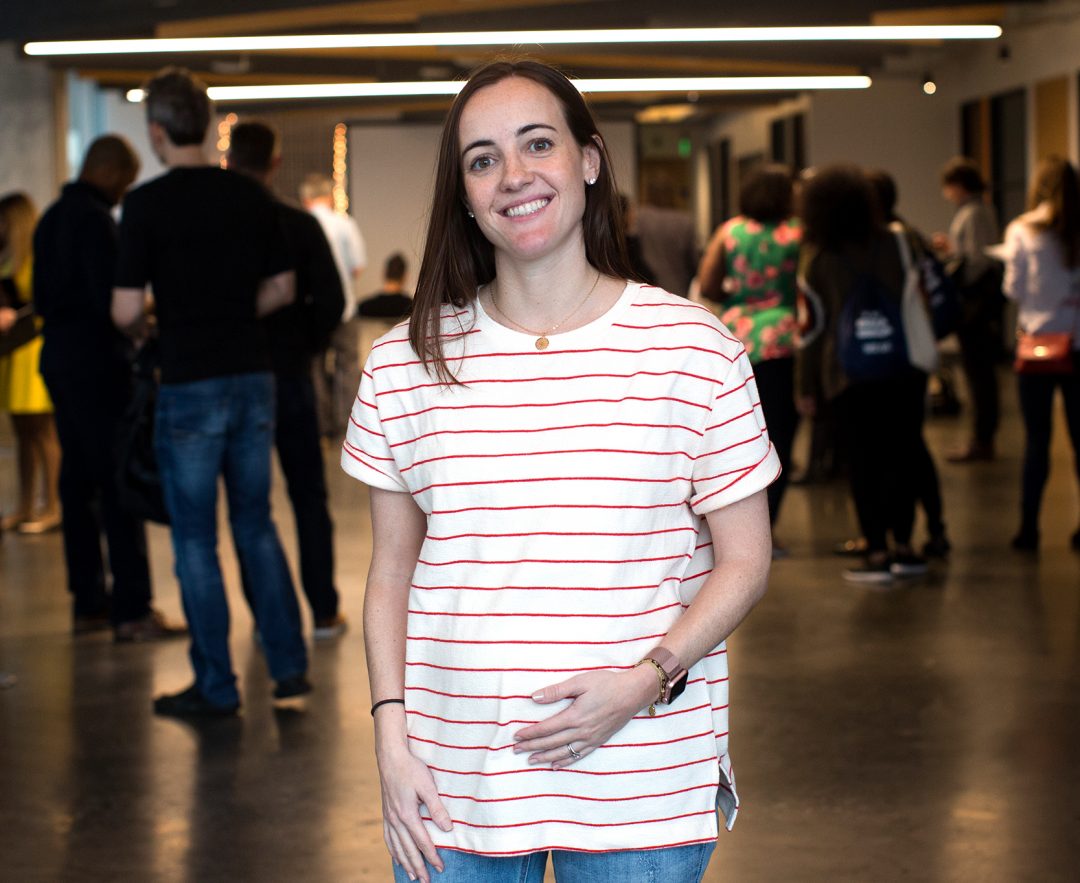 "I have a twin brother and grew up in a Cuban family that was very old school and traditional and quite a bit machista. Having this person that was the same age - the same everything made me aware when my brother got more liberties than I did. And at a young age I would tell my parents that it wasn't fair and they acknowledged what I was saying- and it changed them. There was no room for argument because we were twins. That shaped me. I was able to to stand up for myself in a very concrete way." - Cristina Tamayo works for parallel18 and is pregnant. She is expecting a girl.
"I have a twin brother and grew up in a Cuban family that was very old school and traditional and quite a bit machista. Having this person that was the same age - the same everything made me aware when my brother got more liberties than I did. And at a young age I would tell my parents that it wasn't fair and they acknowledged what I was saying- and it changed them. There was no room for argument because we were twins. That shaped me. I was able to to stand up for myself in a very concrete way." - Cristina Tamayo works for parallel18 and is pregnant. She is expecting a girl.
Cam Kashani
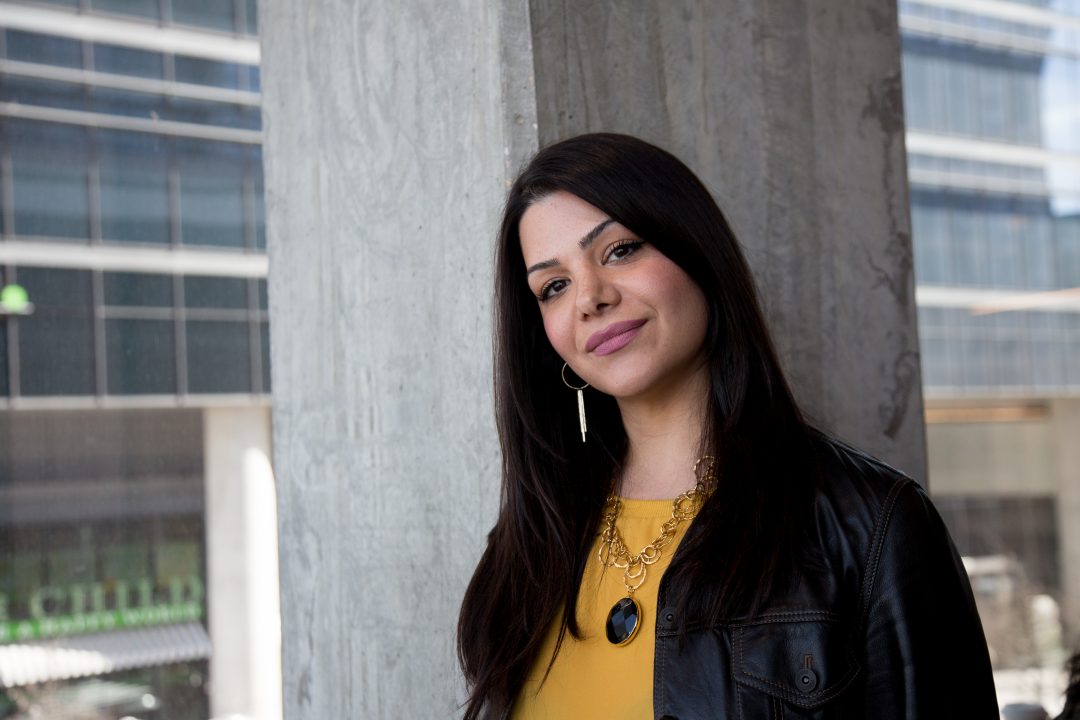 “I got fired from my own company when I filed for divorce. Although I was the one who put in the capitol, I didn't realize my name wasn’t on the business. Part of it was that I was asleep at the wheel. I think a man wouldn’t have allowed that to happen. They would have made sure their name was on the papers.” - Cam Kashani is the Co-Founder and CEO of COACCEL, the human accelerator.
“I got fired from my own company when I filed for divorce. Although I was the one who put in the capitol, I didn't realize my name wasn’t on the business. Part of it was that I was asleep at the wheel. I think a man wouldn’t have allowed that to happen. They would have made sure their name was on the papers.” - Cam Kashani is the Co-Founder and CEO of COACCEL, the human accelerator.
Danielle Cohn
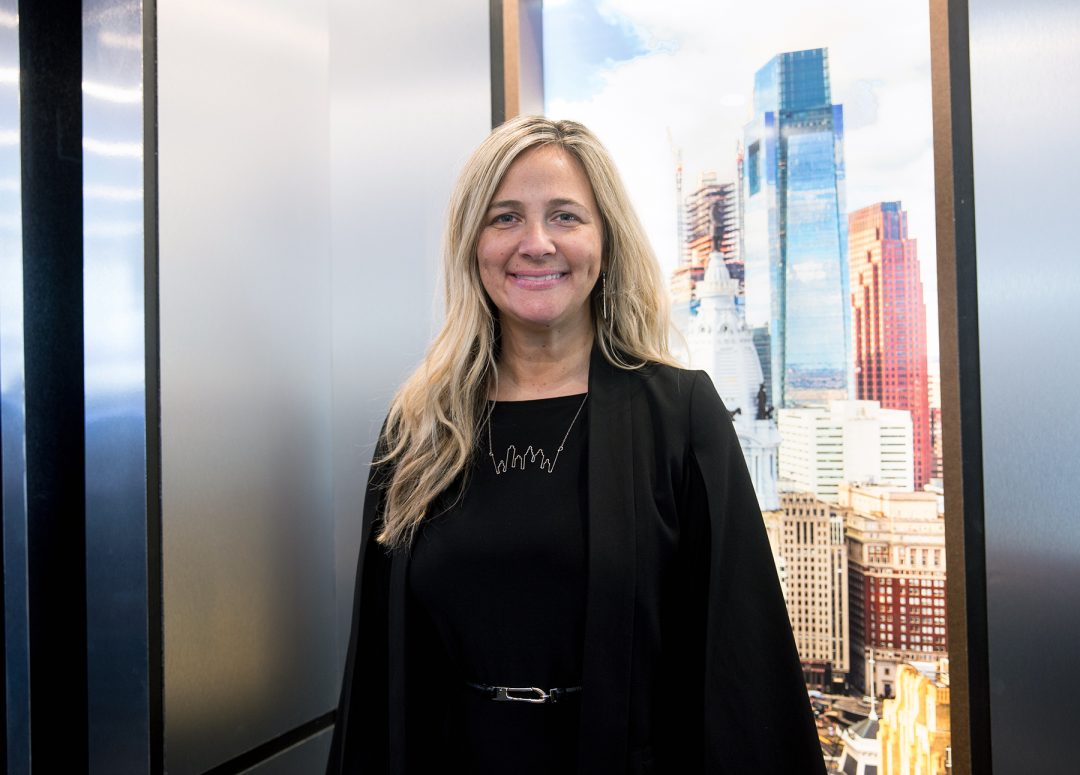 "When I was a young girl I was encouraged to be a performer, to be an actress and singer. My grandmother would take me around as a cute little girl to sing at different community places. That enabled me to be a storyteller, to be able to walk into a room and be comfortable. I was one of the first women in tech in Philly and that has given me good access and opportunity because people were looking for diversity. I don't see being a woman as a challenge I see it as a benefit." - Danielle Cohn is the Director of Entrepreneurial Engagement at Comcast and leads the Lift Lab for entrepreneurs.
"When I was a young girl I was encouraged to be a performer, to be an actress and singer. My grandmother would take me around as a cute little girl to sing at different community places. That enabled me to be a storyteller, to be able to walk into a room and be comfortable. I was one of the first women in tech in Philly and that has given me good access and opportunity because people were looking for diversity. I don't see being a woman as a challenge I see it as a benefit." - Danielle Cohn is the Director of Entrepreneurial Engagement at Comcast and leads the Lift Lab for entrepreneurs.
Kirin Kalia
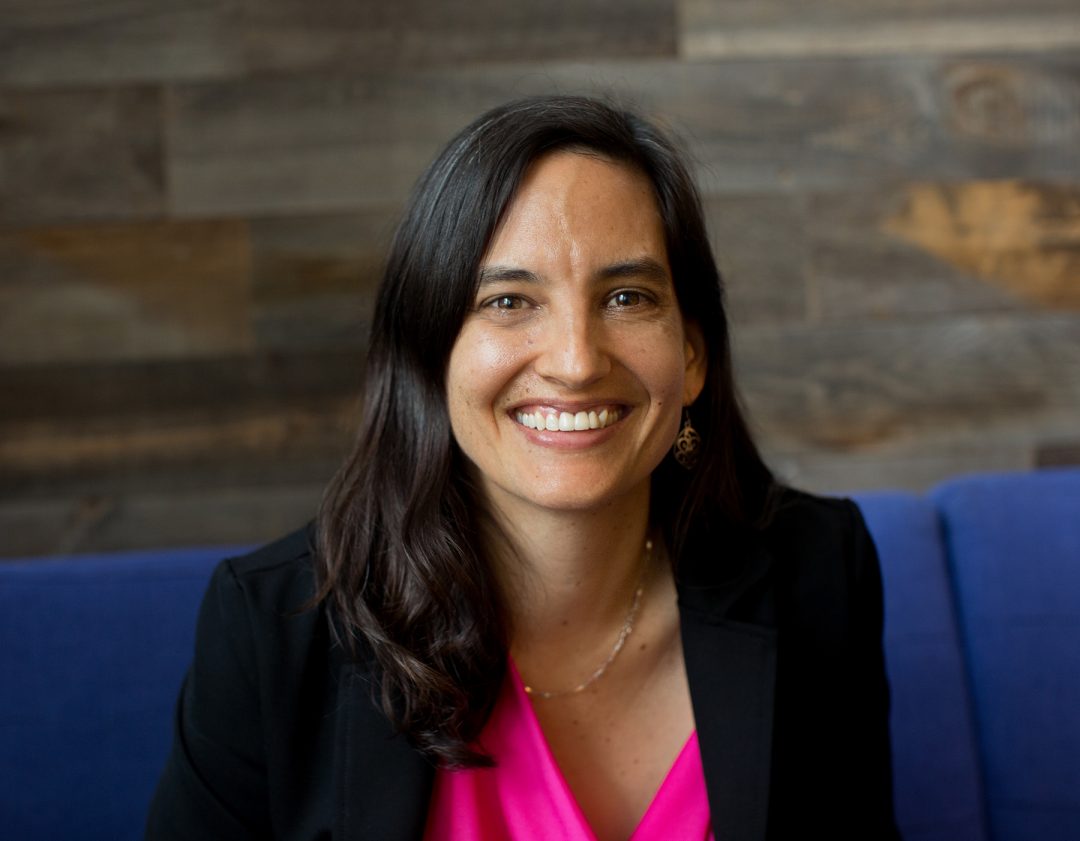 "My father passed away a few months ago. He was from India and when he moved to the United States he didn't want to maintain strong connections with his roots. Eight years ago I went to India and I got to know my Indian family. One of the happiest days of my life was when I realized I had didis. "Didi" means older sister in Hindi and can include cousins. My didis are the eldest daughters of my father's youngest sister. The warmth and love between us was immediate. It was unconditional. They didn't know me and I didn't know them. I didn't know I had didis growing up. I mean WTF. Now we have a didis group on Whatsapp. My Father wanted me to take a safe path, be a lawyer and I pursued a different path. We butted heads until my mid-30's and then this trip to India was a new beginning for my father and me. He started telling me stories about the bumpy path of his immigration. When he was on his deathbed, he told my brother to bring his ashes to the Ganges River. It is the son who has to bury the father. There's no role for the woman in the ritual, as my mother told me. I couldn't take the trip to India this year, to the Ganges - the day my mother and brother went there I cried so hard. But I was with them in spirit. And I'm so glad our Indian family took such good care of them." - Kirin Kalia is the Director of Communications at KITE.
"My father passed away a few months ago. He was from India and when he moved to the United States he didn't want to maintain strong connections with his roots. Eight years ago I went to India and I got to know my Indian family. One of the happiest days of my life was when I realized I had didis. "Didi" means older sister in Hindi and can include cousins. My didis are the eldest daughters of my father's youngest sister. The warmth and love between us was immediate. It was unconditional. They didn't know me and I didn't know them. I didn't know I had didis growing up. I mean WTF. Now we have a didis group on Whatsapp. My Father wanted me to take a safe path, be a lawyer and I pursued a different path. We butted heads until my mid-30's and then this trip to India was a new beginning for my father and me. He started telling me stories about the bumpy path of his immigration. When he was on his deathbed, he told my brother to bring his ashes to the Ganges River. It is the son who has to bury the father. There's no role for the woman in the ritual, as my mother told me. I couldn't take the trip to India this year, to the Ganges - the day my mother and brother went there I cried so hard. But I was with them in spirit. And I'm so glad our Indian family took such good care of them." - Kirin Kalia is the Director of Communications at KITE.
Belisa Bermúdez Fernández
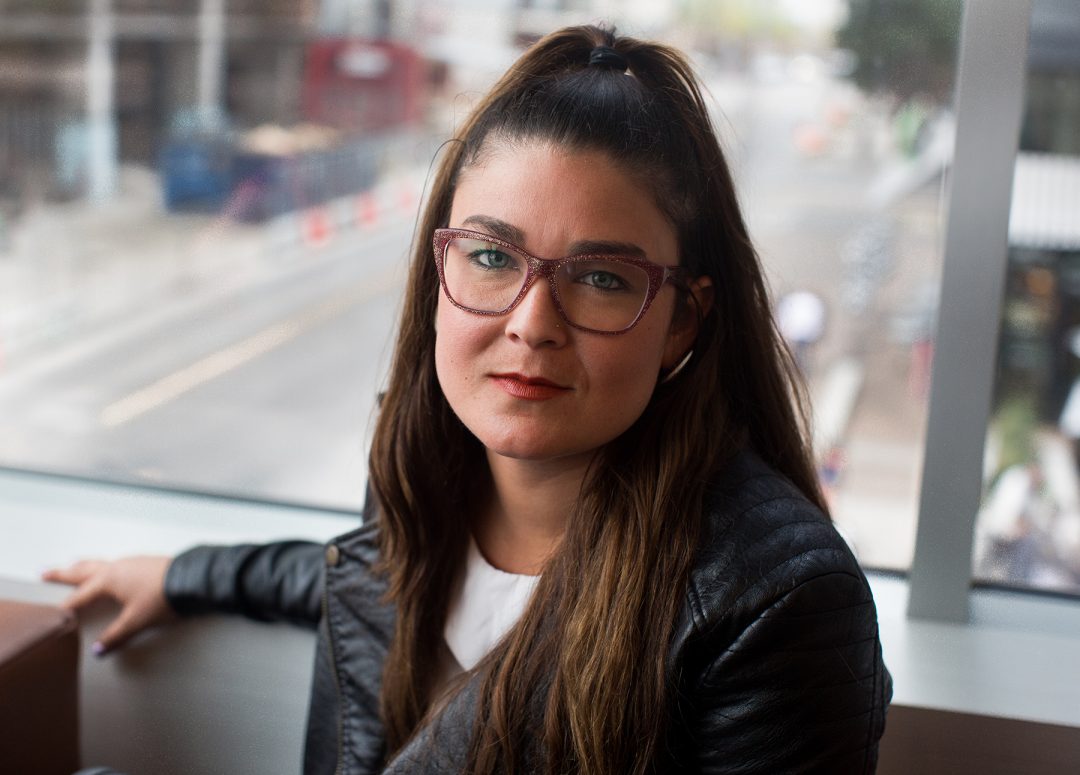 "I went to an all girls school and my friends from there are my army of soul sisters. There are 12 of us, we have been best friends since we were 12." -Belisa Bermúdez Fernández is a start up executive at Parallel18.
"I went to an all girls school and my friends from there are my army of soul sisters. There are 12 of us, we have been best friends since we were 12." -Belisa Bermúdez Fernández is a start up executive at Parallel18.
Temiloluwa Adeniyi
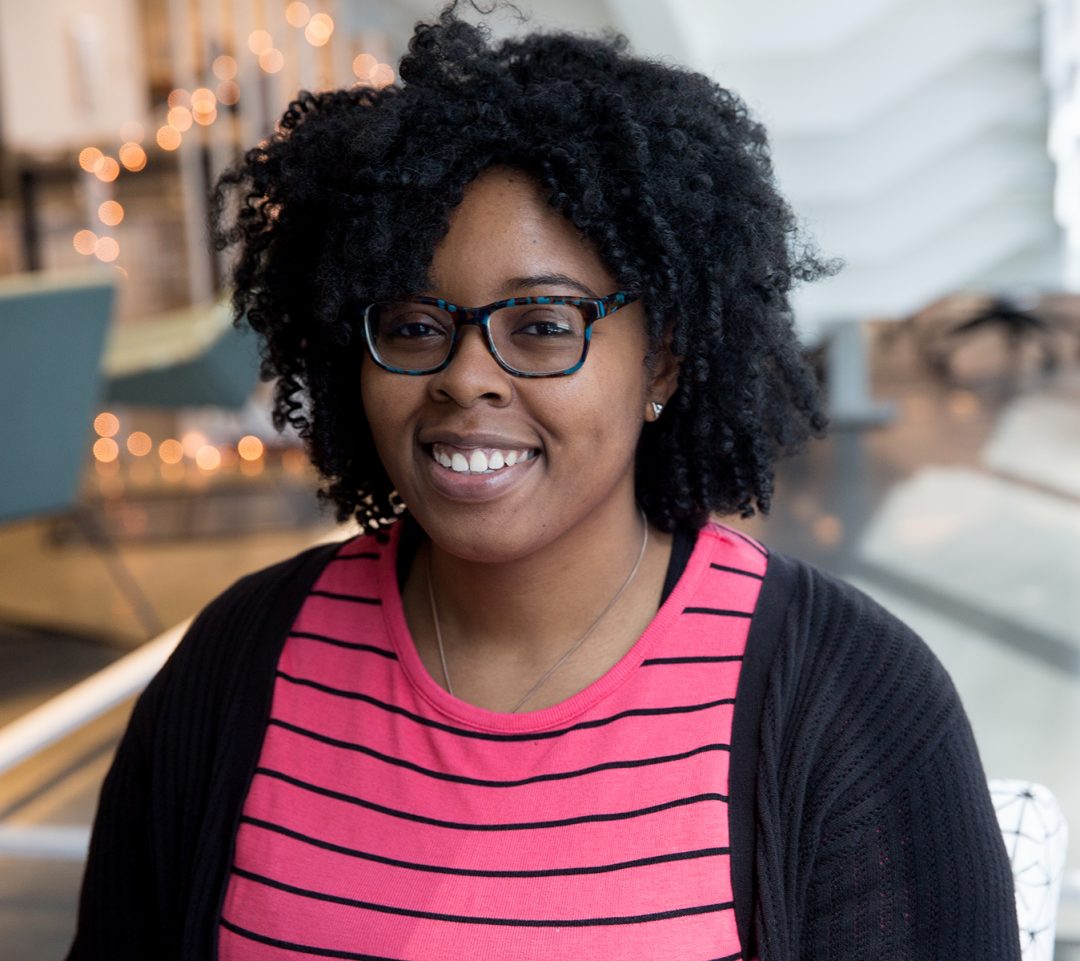 "When I was in 6th grade the Howard Hughes Foundation funded a Saturday science program that was targeting diversity and girls. That summer I was one of five students chosen to go to an extension research program at Duke University. I did research on phage, viruses found in the soil. I discovered a new phage that is still being researched at the Pittsburgh Phage Institute. I knew from the 6th grade that I wanted to become a biochemical engineer. I want to find the woman who ran the Saturday science program, her name is Rebecca and I'd like to thank her because there are a lot of federally funded programs but there needs to be a bridge, a person who is dedicated to making a program happen and to making it diverse, she was that bridge. Innovation only happens when you have diverse perspectives brought together in an integrative way to create a new strategy. I want to use my STEM background for good, it's the social impact of my work that I am most interested in." - Temiloluwa Adeniyi is a graduate student at Georgia Tech and she is the CEO/Founder of Nopneu, LLC which has developed Nopneu, a low cost- diagnostic tool for diagnosing pneumonia in a fraction of the time and cost of conventional methods. Temiloluwa was awarded $10,000 from Backstage Capital this week for winning the Pitch Black Competition at SXSW2018
"When I was in 6th grade the Howard Hughes Foundation funded a Saturday science program that was targeting diversity and girls. That summer I was one of five students chosen to go to an extension research program at Duke University. I did research on phage, viruses found in the soil. I discovered a new phage that is still being researched at the Pittsburgh Phage Institute. I knew from the 6th grade that I wanted to become a biochemical engineer. I want to find the woman who ran the Saturday science program, her name is Rebecca and I'd like to thank her because there are a lot of federally funded programs but there needs to be a bridge, a person who is dedicated to making a program happen and to making it diverse, she was that bridge. Innovation only happens when you have diverse perspectives brought together in an integrative way to create a new strategy. I want to use my STEM background for good, it's the social impact of my work that I am most interested in." - Temiloluwa Adeniyi is a graduate student at Georgia Tech and she is the CEO/Founder of Nopneu, LLC which has developed Nopneu, a low cost- diagnostic tool for diagnosing pneumonia in a fraction of the time and cost of conventional methods. Temiloluwa was awarded $10,000 from Backstage Capital this week for winning the Pitch Black Competition at SXSW2018
Kelly D. Shapiro
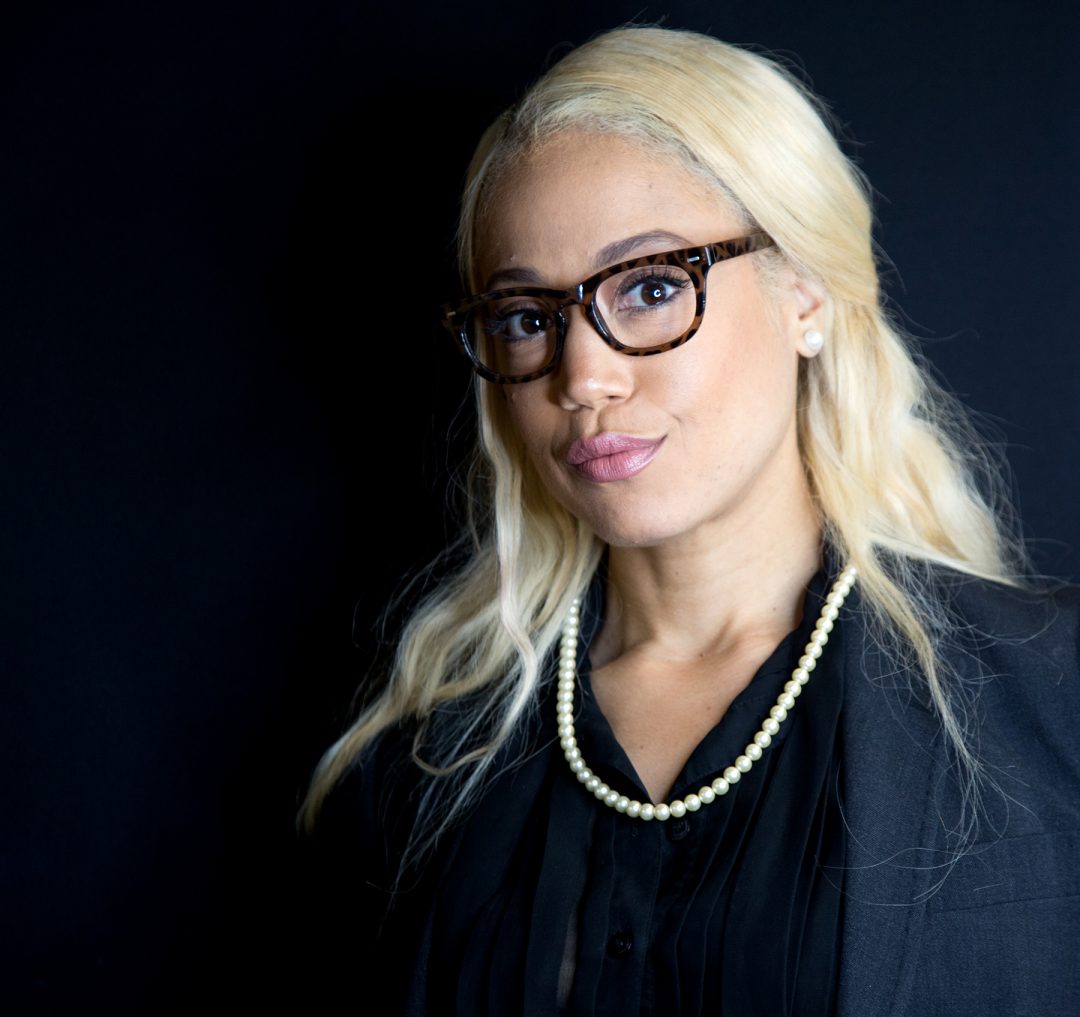 "It's because I am a woman of color and graduated from an Ivy League school that Dolly Singh hired me to be general counsel for her company Thesis Couture Inc. My peers are the demographic for her brand." - Kelly D. Shapiro is an attorney who provides legal representation and business counseling to clients in the entertainment, tech and start-up industry.
"It's because I am a woman of color and graduated from an Ivy League school that Dolly Singh hired me to be general counsel for her company Thesis Couture Inc. My peers are the demographic for her brand." - Kelly D. Shapiro is an attorney who provides legal representation and business counseling to clients in the entertainment, tech and start-up industry.
Jen Lee Reeves & Jordan Reeves
 "The entire adventure Jordan and I are on started the day she born. I knew I would get her all the resources she needed. What I didn't know is that she would be bringing the resources to me." Jen Lee Reeves is the Founder of Born Just Right and is the mother of two children.
"The boys won't pass the basketball to the girls at all unless the teacher tells them to. It's so annoying. But unless I am on an all girls team I don't ever get the ball. And even then I don't get the ball that much." - Jordan Reeves is the Co-Founder and Innovator at Born Just Right. She is 12 years old and designed her own prosthetic arm that she is pictured with, which is a purple unicorn horn that shoots biodegradable glitter. She is currently designing another prosthetic arm for herself that has various tools on it, similar to a Swiss Army Knife.
"The entire adventure Jordan and I are on started the day she born. I knew I would get her all the resources she needed. What I didn't know is that she would be bringing the resources to me." Jen Lee Reeves is the Founder of Born Just Right and is the mother of two children.
"The boys won't pass the basketball to the girls at all unless the teacher tells them to. It's so annoying. But unless I am on an all girls team I don't ever get the ball. And even then I don't get the ball that much." - Jordan Reeves is the Co-Founder and Innovator at Born Just Right. She is 12 years old and designed her own prosthetic arm that she is pictured with, which is a purple unicorn horn that shoots biodegradable glitter. She is currently designing another prosthetic arm for herself that has various tools on it, similar to a Swiss Army Knife.
Rakia Reynolds
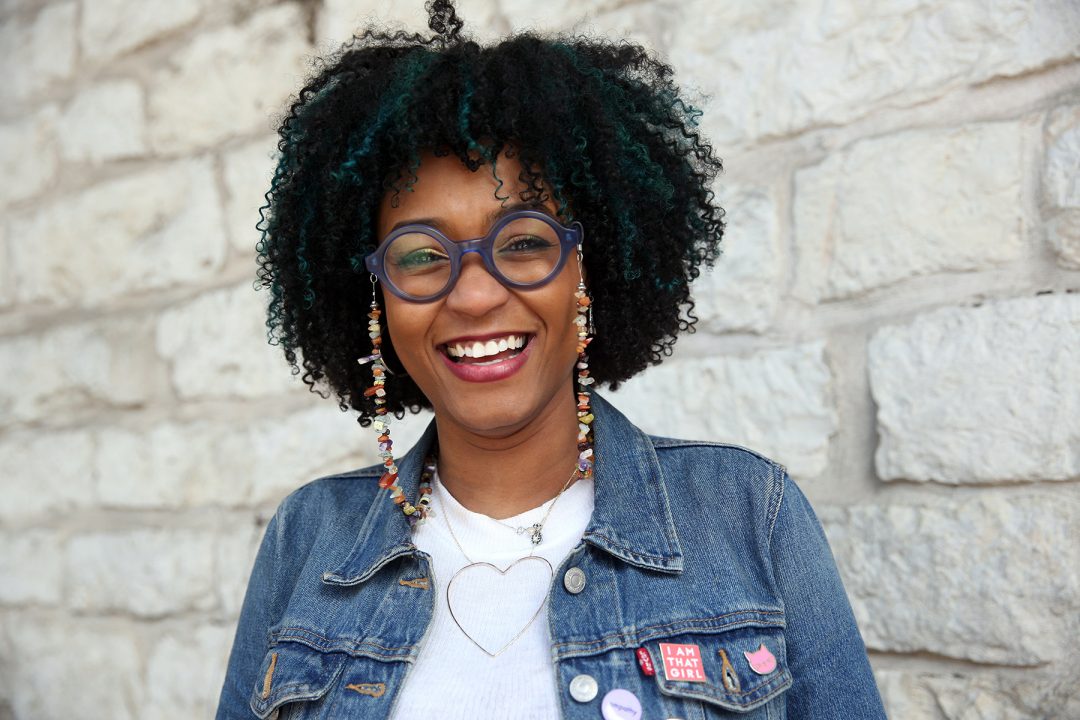 "I used to think procrastinating was a good thing. But when I was pregnant with my third child, I was at a photo shoot when the contractions started. I kept working, I said, just one more photo and then I'll go. But I waited until the contractions were four minutes apart to go to the hospital and I never made it to a room, he was born in the hallway. The hospital staff called him "hallway baby". Now I don't procrastinate." - Rakia Reynolds is the founder and CEO of SkaiBlueMedia and the mother of three children.
"I used to think procrastinating was a good thing. But when I was pregnant with my third child, I was at a photo shoot when the contractions started. I kept working, I said, just one more photo and then I'll go. But I waited until the contractions were four minutes apart to go to the hospital and I never made it to a room, he was born in the hallway. The hospital staff called him "hallway baby". Now I don't procrastinate." - Rakia Reynolds is the founder and CEO of SkaiBlueMedia and the mother of three children.
Emily Chang
 "Listening to the stories that women shared with me inspired me to write my book, "Brotopia: Breaking up the Boys' Club of Silicon Valley". If I weren't a woman I wouldn't have had the understanding about their experience in Silicon Valley. I hope my contribution starts a conversation that makes the world a better place for all of us." - Emily Chang is a journalist/author and the host of Bloomberg Technology.
"Listening to the stories that women shared with me inspired me to write my book, "Brotopia: Breaking up the Boys' Club of Silicon Valley". If I weren't a woman I wouldn't have had the understanding about their experience in Silicon Valley. I hope my contribution starts a conversation that makes the world a better place for all of us." - Emily Chang is a journalist/author and the host of Bloomberg Technology.
Sonya Zhang
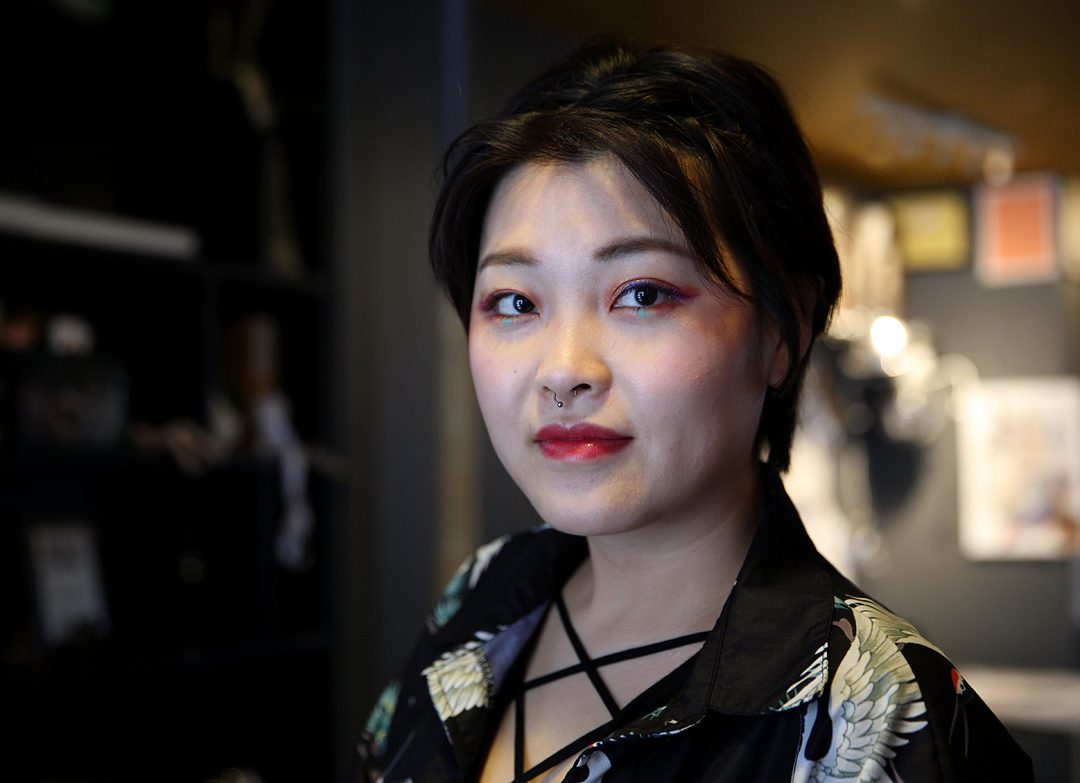 "The customers like coming to the women artists. They think we have more patience listening to them and with the design process. I don't really think we are more patient. I'm not more patient, but people perceive us to be." - Sonya Zhang is a tattoo artist in the East Village and she is originally from China.
"The customers like coming to the women artists. They think we have more patience listening to them and with the design process. I don't really think we are more patient. I'm not more patient, but people perceive us to be." - Sonya Zhang is a tattoo artist in the East Village and she is originally from China.
Margie Alley
 "In 1974 I wasn't allowed to be in or even try out for Little League. There were four of us girls who fought to change the rule and we won. It became a big deal. The headline in the newspaper read, "Girls make History/Herstory". All four us tried out and made the league. They put each of us on different teams though. Our teammates were very respectful, they knew we were good players. The boys from the other teams who didn't have girls on their team made fun of us." - Margie Alley
"In 1974 I wasn't allowed to be in or even try out for Little League. There were four of us girls who fought to change the rule and we won. It became a big deal. The headline in the newspaper read, "Girls make History/Herstory". All four us tried out and made the league. They put each of us on different teams though. Our teammates were very respectful, they knew we were good players. The boys from the other teams who didn't have girls on their team made fun of us." - Margie Alley
Naqausia Pollard
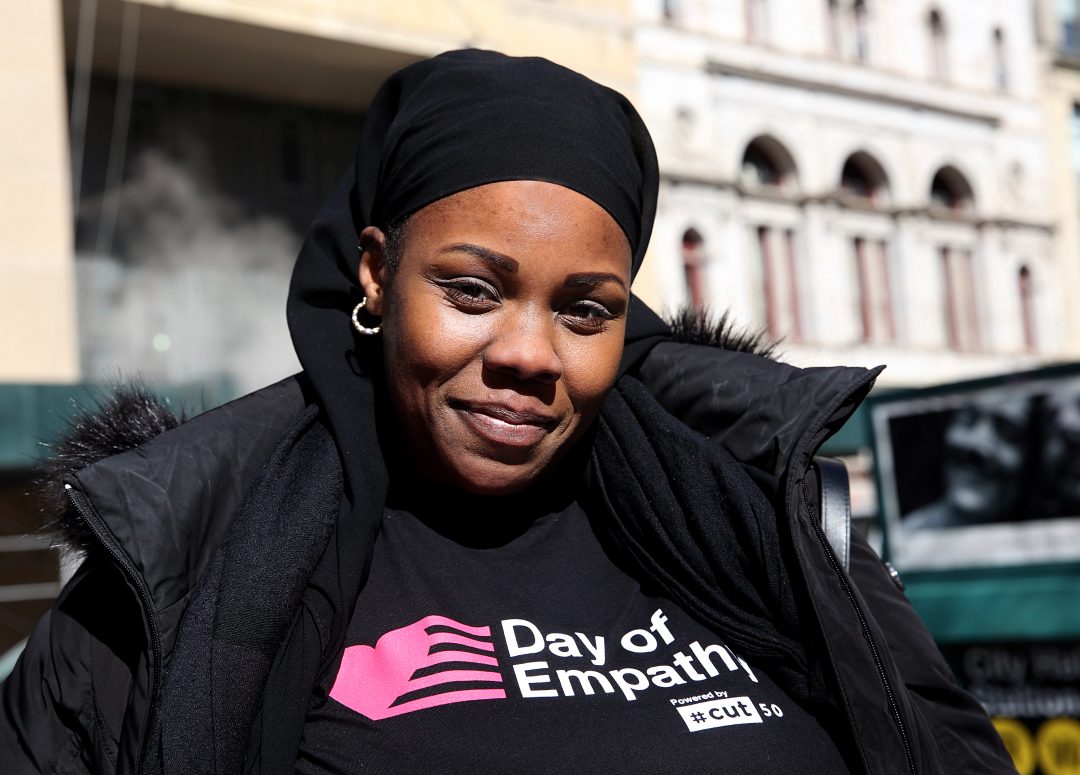 "I don't think I would have been given as much time if I were a man. I was sentenced to 18 years for robbery in the first. They charged me as though I were a predicate, but I was a first time felon. I appealed, but it was denied because I had taken a plea bargain. I was 19 years old and pregnant when I went to prison and I served 15 years." - Naquasia Pollard turns 34 years old today. This is her first birthday at home since was 19 years old.
"I don't think I would have been given as much time if I were a man. I was sentenced to 18 years for robbery in the first. They charged me as though I were a predicate, but I was a first time felon. I appealed, but it was denied because I had taken a plea bargain. I was 19 years old and pregnant when I went to prison and I served 15 years." - Naquasia Pollard turns 34 years old today. This is her first birthday at home since was 19 years old.
Topeka K. Sam
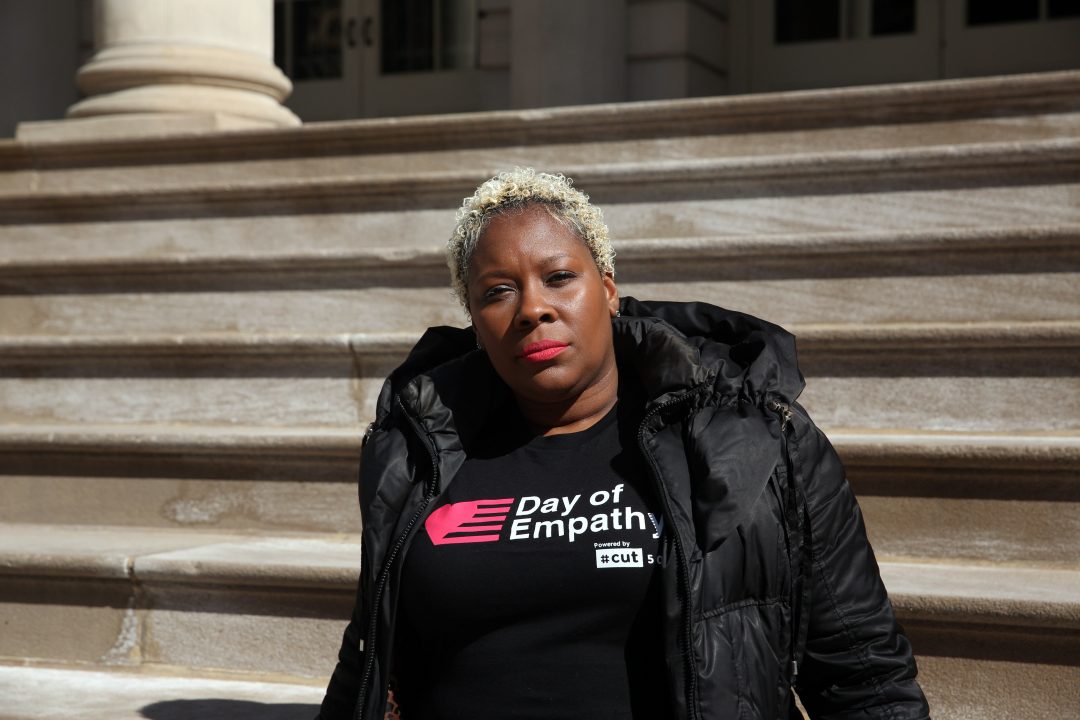 "I think the ability to discern is a gift that is given to most women. In the Bible wisdom is referred to as a woman. I wouldn't be as wise if I weren't a woman. I call this discernment God speaking to us. This ability has empowered me to fight for incarcerated, formerly incarcerated and marginalized women and girls." - Topeka K. Sam is the founder and executive director of The Ladies of Hope Ministries. The mission of The LOHM is to help disenfranchised & marginalized women transition back into society through education, spiritual empowerment, entrepreneurship & advocacy. She is also the c0- founder of Hope House. Topeka served 3.5 years in federal prison and today is her birthday as well as the 2018 #dayofempathy.
"I think the ability to discern is a gift that is given to most women. In the Bible wisdom is referred to as a woman. I wouldn't be as wise if I weren't a woman. I call this discernment God speaking to us. This ability has empowered me to fight for incarcerated, formerly incarcerated and marginalized women and girls." - Topeka K. Sam is the founder and executive director of The Ladies of Hope Ministries. The mission of The LOHM is to help disenfranchised & marginalized women transition back into society through education, spiritual empowerment, entrepreneurship & advocacy. She is also the c0- founder of Hope House. Topeka served 3.5 years in federal prison and today is her birthday as well as the 2018 #dayofempathy.
Sylvie Degiez
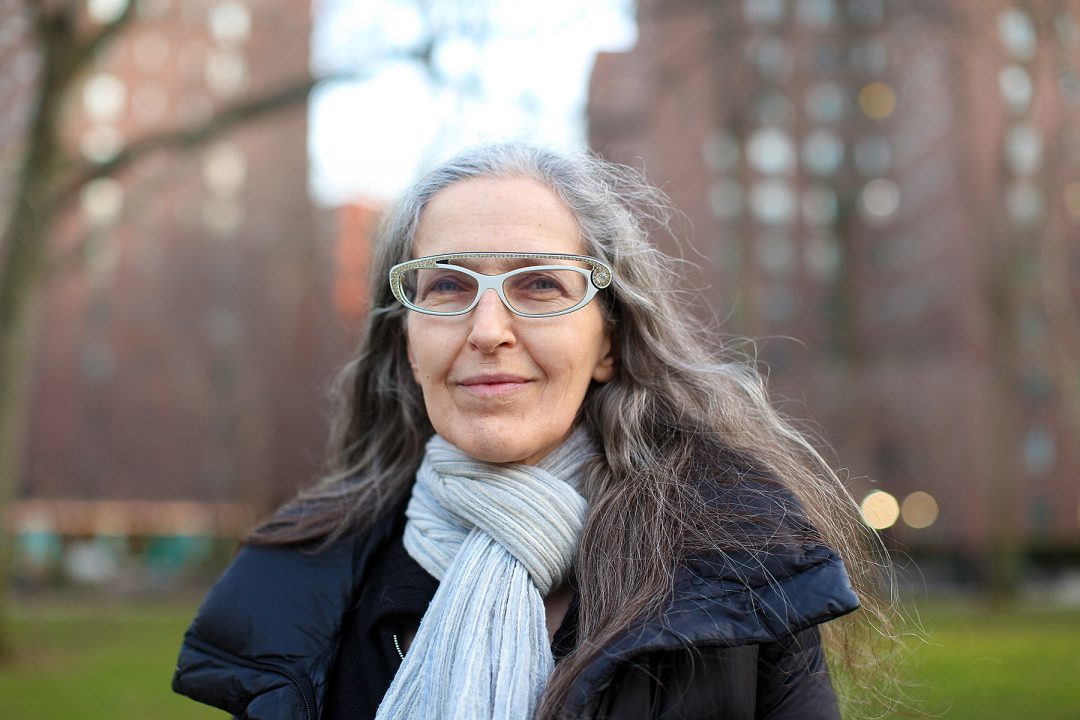 "Everything would have been different if I weren't a woman, especially where I come from in rural Switzerland. It was very gender distinct, so much so that I never even heard about homosexuality until very late in life. My mother said she was a feminist but there was a big discrepancy between her discourse and her actions. She was the center pole of the family and she worked hard and earned a better living than my father but there was always a deference to the males in the family. That is just the way it was there. In my village, divorced women were often looked down on. Even if it was the man who had a lover and broke up the marriage, it was the divorced woman who would have the lower social position. But my mother was always kind to divorced women, well really to all women. She loved women. " - Sylvie Degiez is originally from Switzerland and is a composer/musician/educator.
"Everything would have been different if I weren't a woman, especially where I come from in rural Switzerland. It was very gender distinct, so much so that I never even heard about homosexuality until very late in life. My mother said she was a feminist but there was a big discrepancy between her discourse and her actions. She was the center pole of the family and she worked hard and earned a better living than my father but there was always a deference to the males in the family. That is just the way it was there. In my village, divorced women were often looked down on. Even if it was the man who had a lover and broke up the marriage, it was the divorced woman who would have the lower social position. But my mother was always kind to divorced women, well really to all women. She loved women. " - Sylvie Degiez is originally from Switzerland and is a composer/musician/educator.
Carolina Rojas
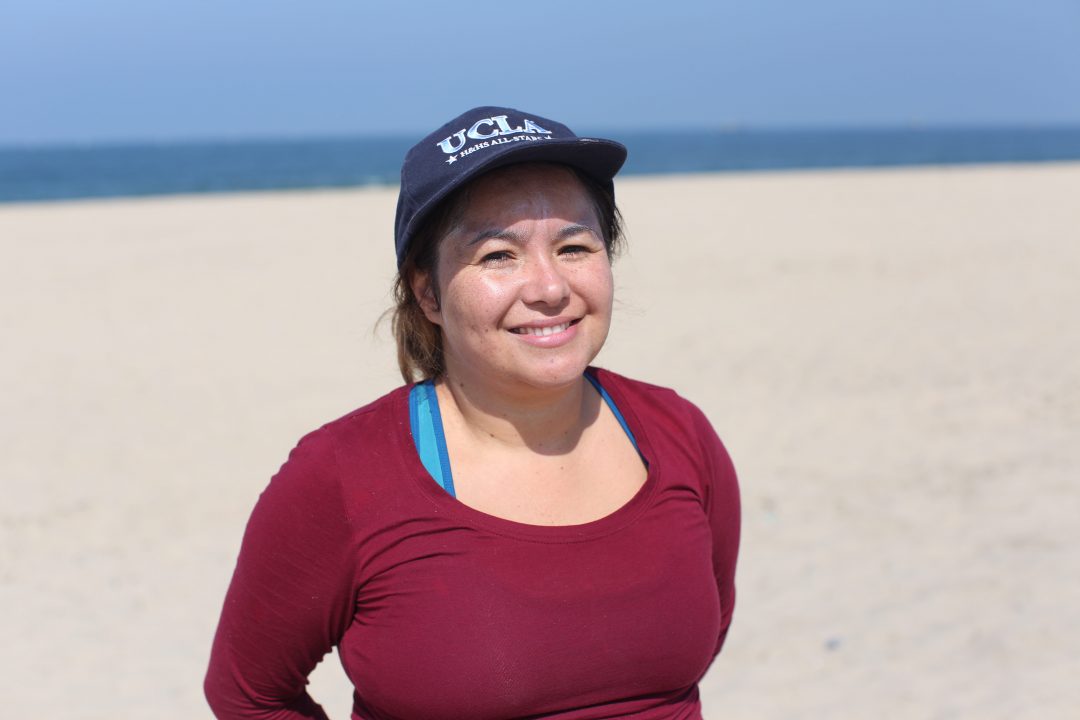 "I have two boys. Going through the pain of labor and then forgetting the pain once you hold the baby and then an overwhelming feeling you are responsible for a person. I constantly question whether I am doing this right." - Carolina Rojas lives in Los Angeles and is the mother of two boys.
"I have two boys. Going through the pain of labor and then forgetting the pain once you hold the baby and then an overwhelming feeling you are responsible for a person. I constantly question whether I am doing this right." - Carolina Rojas lives in Los Angeles and is the mother of two boys.
Chloe Siegman
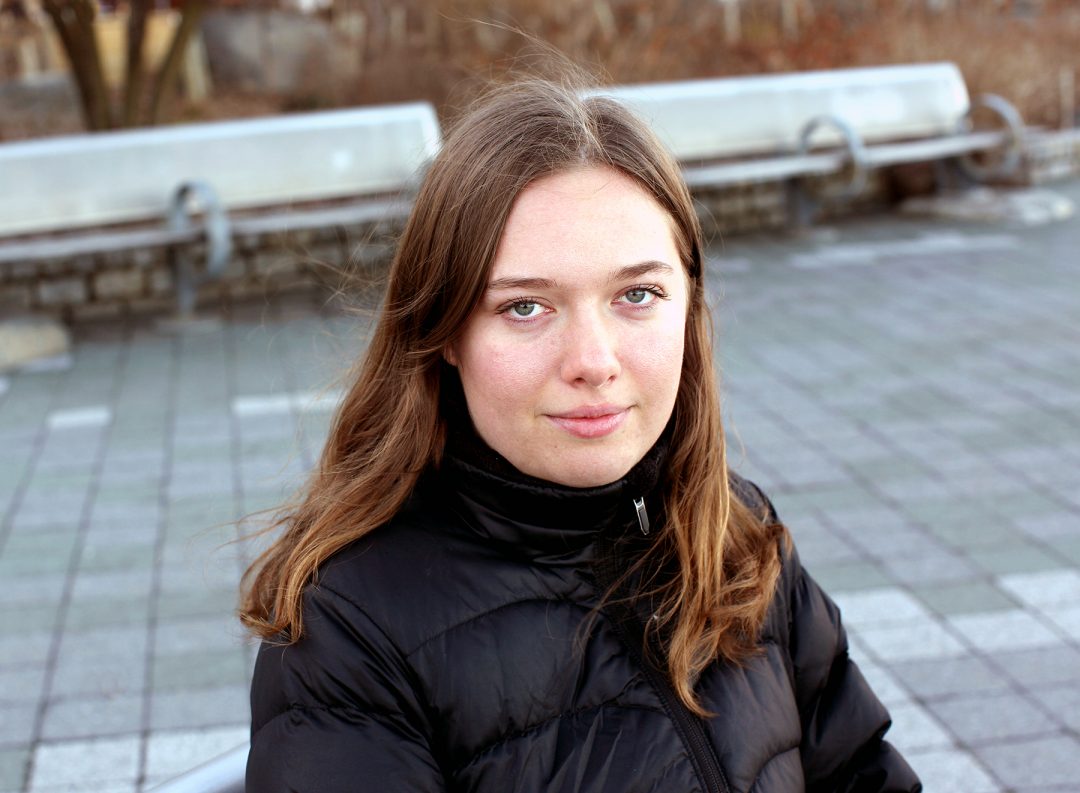 "Everything I I have experienced I have experienced in a certain way because I am a woman. The way I connect with people would be very different if I weren't female. I feel there is a learned behavior that is common in women. It involves listening and reflecting in a way that I don't see in my male presenting friends. I don't think it is a behavior that can't be learned by them, but me and my female friends have practiced more. This way of communicating leads me to see a lot of beauty in other people and opens up a depth of connection that is extremely useful." - Chloe Siegman is a theater arts major at Boston University.
"Everything I I have experienced I have experienced in a certain way because I am a woman. The way I connect with people would be very different if I weren't female. I feel there is a learned behavior that is common in women. It involves listening and reflecting in a way that I don't see in my male presenting friends. I don't think it is a behavior that can't be learned by them, but me and my female friends have practiced more. This way of communicating leads me to see a lot of beauty in other people and opens up a depth of connection that is extremely useful." - Chloe Siegman is a theater arts major at Boston University.
Melissa Tomback
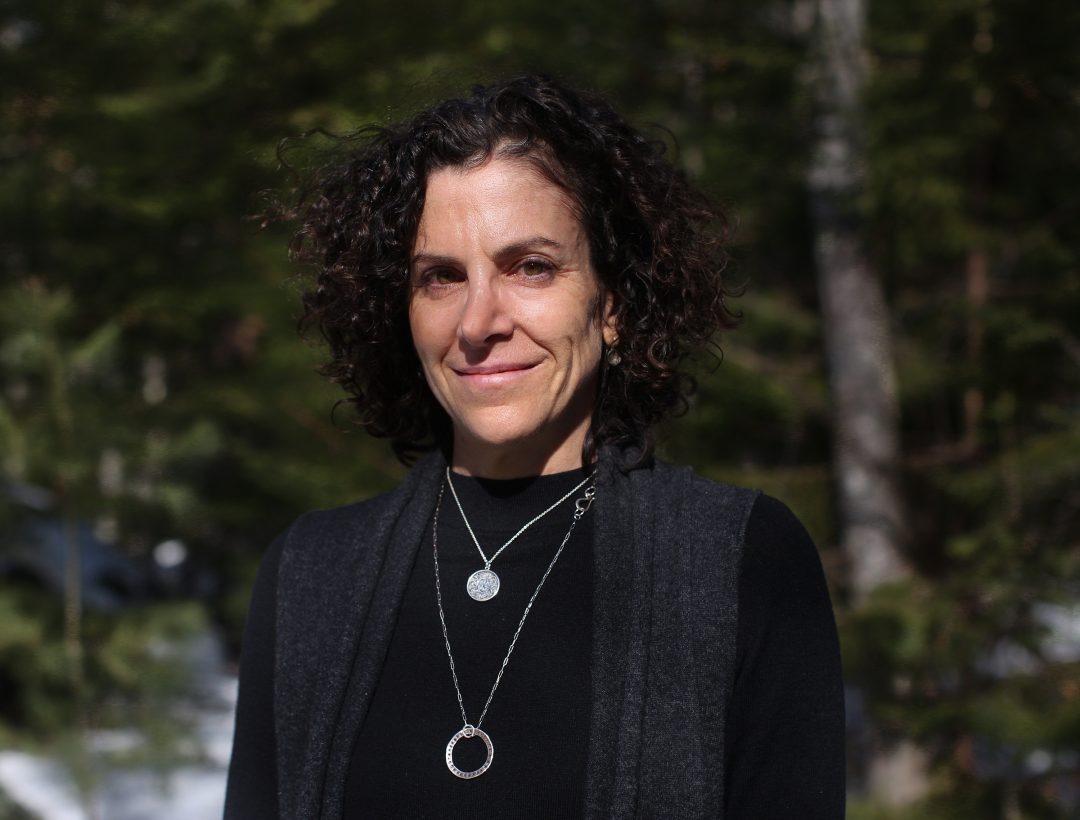 "I gave birth to my younger child, Jacob in my home and that was so empowering. It made me feel like I could do anything. In contrast to my first pregnancy and my daughter's birth, where I had so much doubt about becoming a new mother and read books and got lots of advice. Also, after she was born I had postpartum depression. With the second pregnancy, I realized I had the intuition to deliver him and raise him myself. We had a family bed and I was just calmer, not as anxious." - Melissa Tomback is a mother, lawyer, photographer and doula.
"I gave birth to my younger child, Jacob in my home and that was so empowering. It made me feel like I could do anything. In contrast to my first pregnancy and my daughter's birth, where I had so much doubt about becoming a new mother and read books and got lots of advice. Also, after she was born I had postpartum depression. With the second pregnancy, I realized I had the intuition to deliver him and raise him myself. We had a family bed and I was just calmer, not as anxious." - Melissa Tomback is a mother, lawyer, photographer and doula.